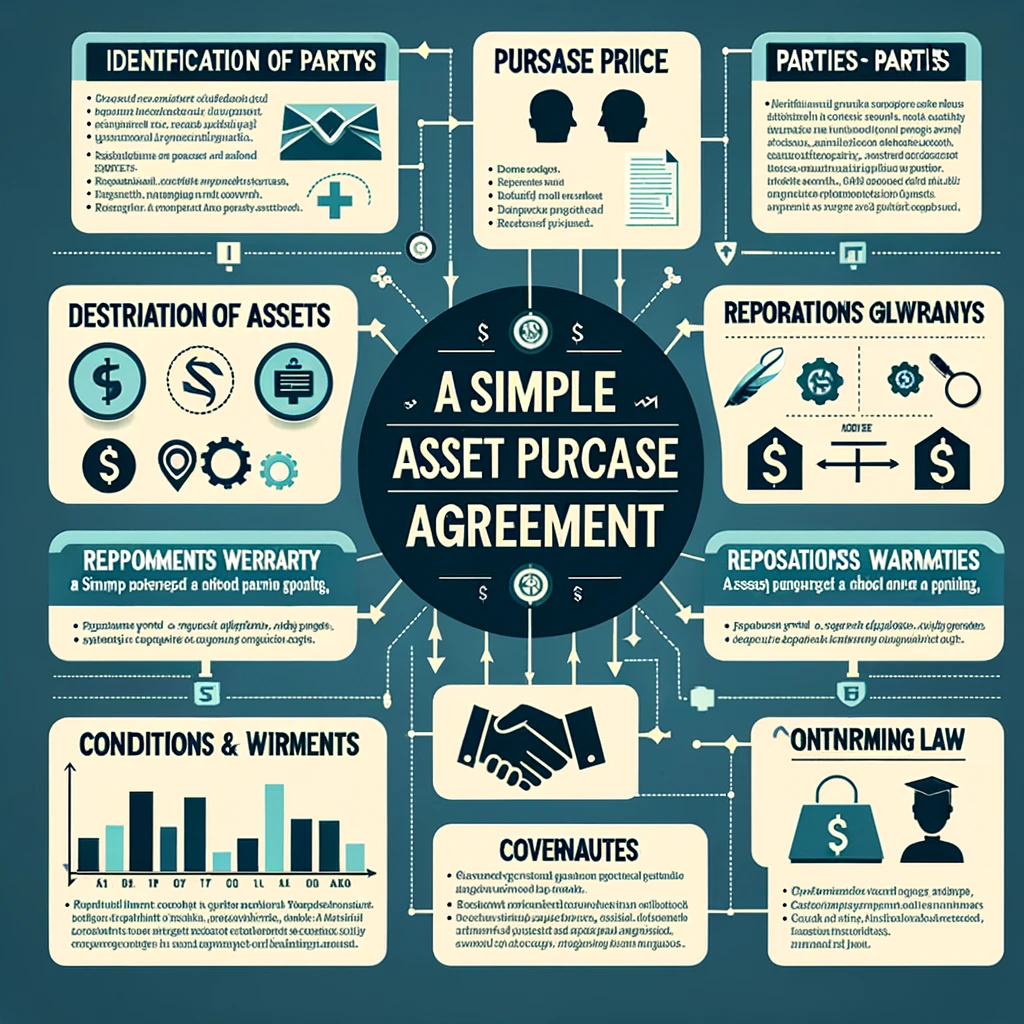The Comprehensive Guide to Simple Asset Purchase Agreements
When it comes to buying or selling a business's assets, a Simple Asset Purchase Agreement (APA) is a crucial document that outlines the terms of the sale. This legally binding contract specifies what assets are being sold, the purchase price, and the terms and conditions of the sale, among other important details. In this guide, we'll delve into the essentials of creating a Simple Asset Purchase Agreement, highlight its significance, and provide insights into navigating the process effectively.

Introduction to Asset Purchase Agreements
An Asset Purchase Agreement is a document used when an individual or company wishes to buy or sell assets from another business. Unlike stock purchases, which involve buying a company's shares, asset purchases focus on acquiring the company's assets, which can include tangible and intangible items such as equipment, inventory, and intellectual property.
Importance of a Simple Asset Purchase Agreement
A well-drafted APA ensures that both parties are clear about the specifics of what is being sold and bought, thereby minimizing potential disputes. It also provides a detailed record of the transaction, which can be crucial for tax and accounting purposes. According to the United States Small Business Administration (SBA), understanding the components of an asset purchase can help business owners navigate the complexities of buying or selling a business more effectively.
Key Elements of a Simple Asset Purchase Agreement
A Simple Asset Purchase Agreement should clearly address several critical components to ensure a smooth transaction:
1. Identification of Parties
List the buyer and seller's full legal names and addresses, establishing the agreement's parties.
2. Description of Assets
Include a detailed list of all assets being purchased. This may encompass physical assets, like machinery and inventory, and intangible assets, such as trademarks and customer lists.
3. Purchase Price and Payment Terms
Specify the total purchase price and outline the payment structure, including any deposits, installments, and final payment details.
4. Representations and Warranties
Both parties make declarations about the business and assets' current status. The Cornell Law School's Legal Information Institute offers insights into representations and warranties in contract law.
5. Conditions Precedent
Outline any conditions that must be met before the transaction can be completed, such as obtaining necessary approvals or licenses.
6. Covenants
Agreements made by the buyer and seller to perform certain actions during the transaction period, such as the seller's obligation to operate the business normally until the sale is finalized.
7. Indemnification
Provisions for protecting the buyer and seller against future claims related to the transaction. The American Bar Association provides a detailed exploration of indemnification clauses.
8. Termination
Conditions under which the agreement can be terminated and the consequences of such termination.
9. Governing Law
Specifies the state laws that will govern the agreement. Understanding local regulations is crucial, as outlined by resources like FindLaw's State Laws.

Create & Review Your Contracts 10x Quality and Ease
Lawyer-level AI handles all your contract needs, with real lawyers providing safeguarding support

Drafting a Simple Asset Purchase Agreement
While templates for Simple Asset Purchase Agreements are available, customization to fit the specific transaction is often necessary. Here are steps to create an effective APA:
Gather Information: Compile a list of all assets involved and any pertinent business information.
Consult Legal and Financial Experts: Seek advice from professionals to ensure the agreement is comprehensive and compliant with relevant laws.
Use a Template as a Starting Point: Templates can provide a structure, but ensure all sections are tailored to your specific deal.
Review and Revise: Both parties should thoroughly review the draft agreement, making any necessary revisions.
Conclusion
A Simple Asset Purchase Agreement is a fundamental component of buying or selling business assets. By clearly outlining the terms and conditions of the sale, it helps protect both parties' interests and ensure transparency throughout the process. Utilizing the guidance of legal and financial professionals, along with reputable resources, can aid in drafting an effective agreement that meets all legal requirements and aligns with both parties' expectations.
For further information on asset purchase agreements and related legal documents, consider exploring educational resources provided by institutions such as Harvard Law School or official guidelines from governmental websites like the U.S. Small Business Administration.

